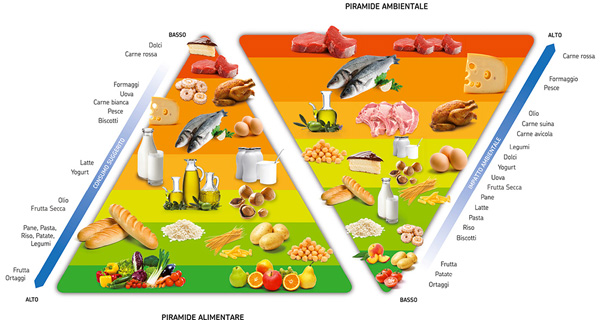
Vegetables, fruit and cereals – preferably wholegrain – every day, and meat or fish twice a week: the Mediterranean diet is not only ideal for human health, but also respects the environment. A sustainable menu can save around 2,500 liters of water a day on average at a global level, compared to a diet with frequent consumption of meat: the equivalent of 20 baths tubs! This is what emerges from the presentation of comparative dietary models which Camillo Ricordi, director of the Diabetes Research Institute at the University of Miami Medical School and member of the BCFN Foundation Advisory Board, gave in Miami at America and the Old World: food, health and culture – the event officially presenting the Milan Expo 2015 in the Usa.
According to the Food and Agriculture Organization of the United Nations (FAO) sustainable diets are those with low environmental impacts which contribute to food and nutrition security and to healthy life for present and future generations. A recommendation relaunched only a few days ago by the US Dietary Guidelines Advisory Committee. For the first time, the expert advisors consider not only the value of food for health, but also its environmental impact, recommending a vegetable-based diet that includes whole grain cereals, legumes and nuts.
“In 2050, we will need the resources of three planets to meet the requirements of our current lifestyle,” states Camillo Ricordi, member of the BCFN Advisory Board. “This derives from several shocking paradoxes: every year, around 36 million people die of hunger, while another 30 million die from over-eating or from eating unhealthy food; today, one third of all crops goes to producing animal feed and biofuels: we are feeding our cars instead of people! All this while 1.3 billion tons of edible food is wasted every year.”
“Expo 2015 is a unique opportunity to discuss and find a solution to these paradoxes and to ask Governments to make this emergency a top priority,” adds Ricordi. “Considering the impact of food on the environment together with its impact on health is the path that the experts at the Barilla Center for Food and Nutrition have been suggesting for some time in their Double Food and Environment Pyramid – a model which even the most recent studies have found to be absolutely effective”.
A commitment which the Italian Government is proposing through the Milan Charter – a global agreement to ensure healthy, safe and sufficient food for everyone, to be presented at Expo 2015.
In 2013, with the contribution of over 500 international experts, the BCFN Foundation finalized the Milan Protocol, a project which almost 100 institutions and public and private organizations around the world – as well as thousands of private citizens – have signed up to. The Milan Protocol is one of the reference documents for the preparation of the Milan Charter commissioned by the Italian Government; the final version will be handed over on October 16 to the Secretary General of the United Nations, Ban Ki Moon.
“The Milan Protocol puts forward concrete objectives, concludes Camillo Ricordi: To halve food waste by 2020, though an awareness and prevention campaign, as well as effective management of the food chain. Agrarian reforms and battling financial speculation on food raw material prices to prevent land exploitation. Fighting hunger and malnutrition ensuring access to food for all, while combating obesity by encouraging a culture of prevention and healthy eating from a young age”.
